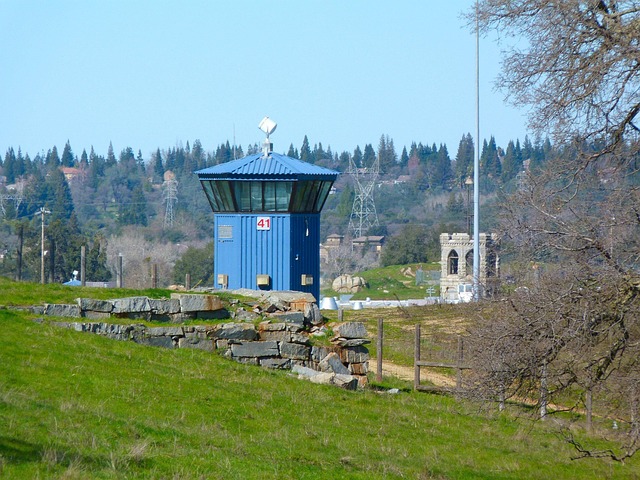Event security for executives is a crucial yet often overlooked aspect of event planning. High-profile events face various risks, from security breaches to emergencies, necessitating robust response plans. Effective strategies include risk assessments, access control, and specialized training for rapid response teams. These teams, composed of structured leadership, diverse experts, and regular training, ensure swift decision-making and effective incident management. Proactive threat assessment, detailed response planning, and drills further enhance event security, catering specifically to the needs of executives. Real-world examples demonstrate the critical role of rapid response teams in managing challenges like security breaches and natural disasters, ensuring a safe environment for all participants.
Unforeseen threats at events can have devastating consequences. That’s where rapid response teams (RRTs) play a pivotal role, serving as the first line of defense in mitigating risks and ensuring public safety. This article delves into the critical importance of RRTs for event security from an executive perspective, offering a comprehensive overview that includes team roles, key components, proactive threat assessment strategies, and successful case studies. Understanding event security is essential for executives to make informed decisions, enhancing overall event resilience and participant well-being.
Understanding Event Security for Executives: A Critical Overview
Event security for executives is a critical aspect that often gets overlooked, yet it’s essential to ensure a smooth and safe experience. For high-profile events attended by key decision-makers, understanding potential threats and having robust response plans in place is paramount. Executive presence can attract attention from various risks, including security breaches, emergency situations, or even targeted attacks.
Executives, as prominent figures, may become focal points for security concerns. Protecting them not only ensures their well-being but also maintains the event’s integrity and reputation. Effective event security involves a comprehensive strategy that includes risk assessments, access control measures, and specialized training for response teams. By prioritizing executive security, organizers demonstrate a commitment to comprehensive event management, fostering an environment where every participant feels safe and valued.
The Role of Rapid Response Teams in Mitigating Unforeseen Threats
Rapid response teams play a pivotal role in ensuring event security for executives and mitigating unforeseen threats. These specialized groups are designed to act swiftly and efficiently when unexpected incidents occur, such as medical emergencies, security breaches, or natural disasters. Their primary goal is to minimize disruption and ensure the safety of all attendees, executives, and staff involved.
Through rigorous training and well-rehearsed protocols, rapid response teams can quickly assess a situation, coordinate with on-site personnel, and implement appropriate measures. This includes providing immediate medical aid, evacuating affected areas, or managing crowd control during chaotic events. By having these teams in place, event organizers can enhance overall security, instill confidence in attendees, and guarantee that any potential threat is handled promptly and professionally.
Key Components of an Effective Rapid Response Team
An effective rapid response team for handling unforeseen threats at events, particularly focusing on event security for executives, is a well-coordinated unit with specific key components. Firstly, this includes a dedicated leadership structure that can swiftly make critical decisions and coordinate various resources. Secondly, specialized personnel such as security experts, medical professionals, and crisis communicators are essential to handle different aspects of an incident effectively.
Additionally, robust communication systems are vital to ensure seamless information flow among team members, event organizers, and relevant authorities. Lastly, regular training and drills help in honing the team’s skills, fostering a culture of preparedness, and ensuring they can respond promptly and efficiently when faced with unforeseen threats during high-profile events.
Strategies for Proactive Threat Assessment and Planning
Proactive threat assessment is a cornerstone of effective event security for executives, allowing organizers to prepare for potential risks before they materialize. This process involves a comprehensive analysis of the event’s unique environment and potential vulnerabilities. By evaluating factors like historical data on similar events, venue specifics, expected attendee demographics, and possible external influences, organizers can identify high-risk areas and develop targeted strategies.
A robust planning phase is integral to this strategy. It entails designing detailed response plans for various threat scenarios, including procedures for communication, evacuation, and incident management. Regular drills and simulations further reinforce readiness, enabling rapid response teams to execute their roles seamlessly during an actual emergency. This proactive approach ensures that event security for executives remains dynamic and adaptable, fostering a safe environment for all attendees.
Case Studies: Successful Implementation of Rapid Response Teams
Rapid response teams have proven their value in numerous case studies, showcasing their ability to mitigate unforeseen threats at events. One notable example involves a major international business conference where a potential security breach was swiftly addressed. The team’s quick deployment and coordination with local law enforcement prevented what could have been a catastrophic incident, ensuring the safety of high-profile executives and attendees.
Another successful implementation occurred during a cultural festival in a large urban center. When a sudden fire broke out in one of the main stages, the rapid response team immediately activated their protocols. They efficiently managed the evacuation, contained the fire, and coordinated with emergency services, minimizing panic and damage. This incident highlights the team’s capability to handle diverse threats, from security breaches to natural disasters, ensuring event security for executives and the general public alike.
Rapid response teams are a game-changer in ensuring event security for executives, offering a proactive approach to mitigate unforeseen threats. By combining comprehensive threat assessment, well-coordinated communication, and swift action, these teams can transform potential crises into manageable situations. The success of these strategies is evident in various case studies, demonstrating their effectiveness in enhancing overall event safety and peace of mind for all involved. Executives can greatly benefit from adopting these measures to safeguard their events and protect their guests.
